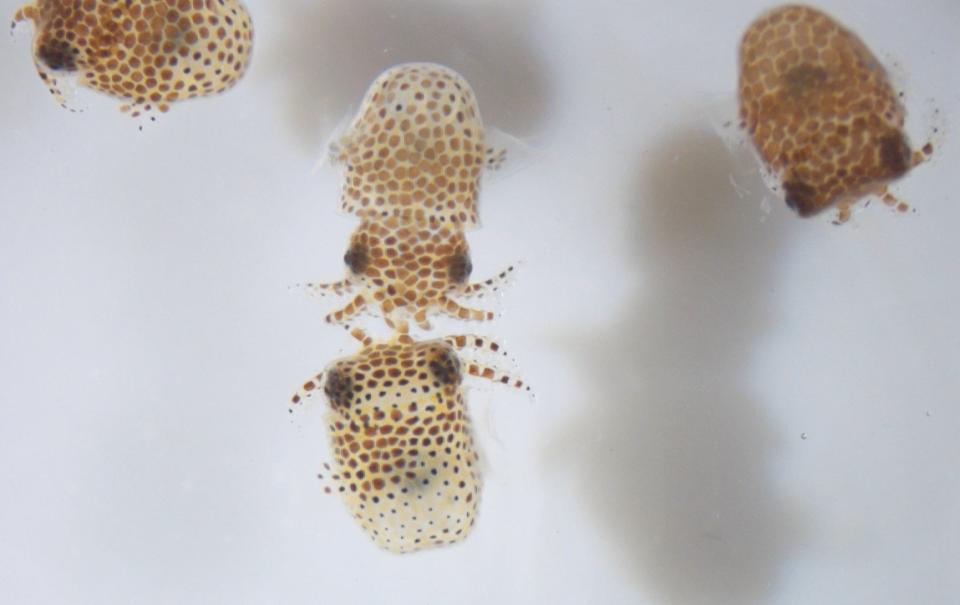SpaceX and Nasa shoot baby squid into space

Nasa and SpaceX have sent dozens of baby squid into space.
The animals, taken from Hawaii, will spend some time at the International Space Station before coming back down again.
Researchers hope that the stay will allow them to better understand how spaceflight affects the squid – and use that information in the hope of protecting human health during long space missions, according to the Honolulu Star-Advertiser.
The squid – baby Hawaiian bobtail squid, to be precise – were raised at the University of Hawaii’s Kewalo Marine Laboratory. They left for space earlier this month, on a SpaceX supply mission to the ISS.
The squid have a symbiotic relationship with natural bacteria that help regulate their bioluminescence.
When astronauts are in low gravity their body's relationship with microbes changes, said University of Hawaii professor Margaret McFall-Ngai, who Foster studied under in the 1990s.
“We have found that the symbiosis of humans with their microbes is perturbed in microgravity, and Jamie has shown that is true in squid,” said McFall-Ngai. “And, because it's a simple system, she can get to the bottom of what's going wrong.”
Foster is now a Florida professor and principal investigator for a NASA program that researches how microgravity affects the interactions between animals and microbes.
“As astronauts spend more and more time in space, their immune systems become what's called dysregulated. It doesn't function as well,” Foster said. “Their immune systems don't recognize bacteria as easily. They sometimes get sick.”
Foster said understanding what happens to the squid in space could help solve health problems that astronauts face.
“There are aspects of the immune system that just don't work properly under long-duration spaceflights,” she said. “If humans want to spend time on the moon or Mars, we have to solve health problems to get them there safely.”
The Kewalo Marine Laboratory breeds the squid for research projects around the world. The tiny animals are plentiful in Hawaiian waters and are about 3 inches (7.6 centimeters) long as adults.
The squid will come back to Earth in July.
Additional reporting by Associated Press
Read More
UK government tests ‘emergency alert’ system by making loud sirens play out of people’s phones
Bitcoin price suddenly crashes below $30k as crypto market enters ‘freefall’
Bitcoin news – live: Price crashes below $30k, amid staggering losses for crypto market

 Yahoo Finance
Yahoo Finance 